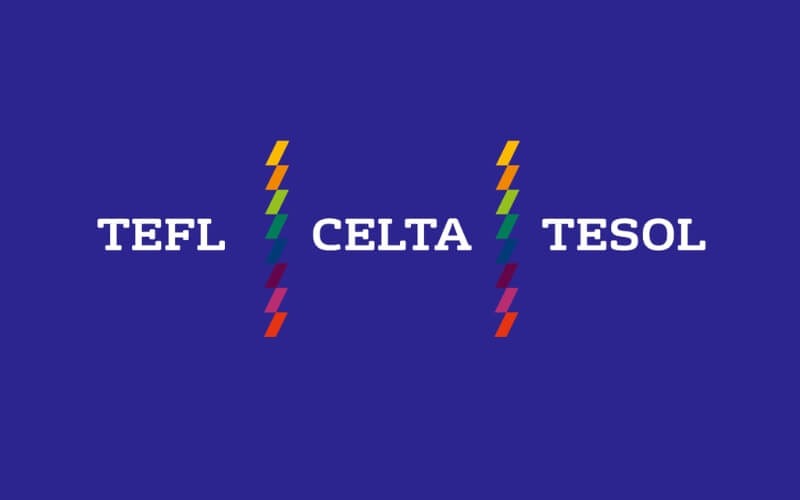
Difference Between CELTA and TEFL: Which Certification Is Right for You?
CELTA and TEFL certifications serve different purposes in English language teaching. While both qualifications enable you to teach English, they differ significantly in their recognition, training intensity, and career opportunities. Understanding these key differences is crucial for choosing the right certification path for your teaching career.
1. What Are the Key Differences Between CELTA and TEFL Certifications
1.1 How Do CELTA and TEFL Certifications Compare
CELTA stands for Certificate in Teaching English to Speakers of Other Languages. It’s a qualification that helps people learn how to teach English to students who don’t speak English as their first language. CELTA is a program offered by Cambridge University, so it’s well-respected around the world. In a CELTA course, people get lots of practice teaching and learn important skills, like how to explain English grammar, plan lessons, and manage a classroom. The course usually takes at least 120 hours, which means it’s pretty thorough!
TEFL stands for Teaching English as a Foreign Language. This is a general term that refers to teaching English to people in other countries where English isn’t the main language. A TEFL certificate is a type of qualification that shows you’re prepared to teach English to students who are learning it as a second language. Like CELTA, a TEFL course usually includes about 120 hours of learning. It covers similar topics, such as teaching methods, ways to help students practice English, and tips for managing a classroom.
Both CELTA and TEFL can prepare someone to teach English, but CELTA is usually a bit more specific and recognized worldwide, especially if you want to teach in different countries.
Discover Related Guides: Top 24 Best Countries for Digital Nomads

1.2. What Requirements Must You Meet for CELTA vs TEFL Certification?
| Requirement | CELTA | TEFL |
| Educational Background | – Must be at least 18 years old. – Usually requires an education level for university entry, and some centers may ask for a degree. | – Varies widely by provider.- Some courses may only need a high school diploma, or may have no specific educational requirements. |
| Language Proficiency | – Requires high-level English proficiency, generally C1 on the CEFR scale. | – Also requires strong English skills, but specific levels vary by provider. |
| Course Structure | – At least 120 hours of study. – Includes 6 hours of assessed teaching practice and 6 hours of observing experienced teachers. | – Typically around 120 hours, but often more flexible. – Can be fully online, in-person, or mixed. |
| Assessment | – Continuous assessment, including teaching practice, written assignments, and lesson planning. | – Assessment methods vary by provider; may include quizzes, assignments, and optional teaching practice. |
| Intensity & Recognition | – Very intensive and highly respected worldwide, especially by employers. – Known for its strong training and connection to Cambridge University. | – Often less intensive but provides flexible options, and it’s recognized in many teaching roles. |
| Cost | – Usually more expensive due to the detailed course structure and Cambridge recognition. | – Costs vary widely, with some affordable options available. |
1.3. How Much Do CELTA and TEFL Certifications Cost
| Cost Comparison | CELTA | TEFL |
| Typical Cost Range | $1,500 to $4,000 USD | $200 to $2,000 USD |
| Factors Influencing Cost | – Location of course (some places may charge more or less). – Mode of delivery (online, in-person, or hybrid). – Reputation of the training center (some centers may have higher costs due to quality and recognition). | – Course provider and quality.- Number of hours (e.g., 120-hour courses are common). – Inclusion of practical teaching components (courses with practice sessions may cost more). |
1.4. What Career Paths Can You Pursue with CELTA vs TEFL Qualifications?
| Career Opportunities | CELTA | TEFL |
| Where can you work? | CELTA is widely recognized in many countries, especially in high-quality language schools and institutions. | TEFL is also accepted in many places, particularly in private language centers, online, and in some public schools. |
| Job Requirements | Some employers, especially top schools or larger institutions, prefer CELTA for its rigorous training standards. | Many TEFL positions are open worldwide, offering flexibility. Requirements may vary, but a TEFL is usually accepted. |
| Salary Expectations | CELTA qualifications can sometimes lead to higher salaries due to the course’s thorough preparation and reputation. | TEFL may lead to a variety of job types, with pay depending on the location and school, often starting at standard entry-level rates. |
2. How to Choose Between CELTA and TEFL – Key Decision Factors
- CELTA: For those aiming to teach at high-ranking schools or language centers in countries with competitive teaching markets (like Europe, parts of Asia, or the Middle East), CELTA can be a big advantage. It’s respected for its structured training, which means many employers trust CELTA teachers to have strong skills right from the start.
- TEFL: TEFL is perfect if you’re looking for flexibility in where and how you teach. It opens doors to many online teaching jobs, private tutoring, and positions in regions like Southeast Asia, Latin America, and parts of Europe. TEFL certification is versatile, and with experience, teachers can find rewarding roles across the globe.
In short, if you’re aiming for a teaching job with a bit more recognition and possibly a higher salary, CELTA may be the best fit. On the other hand, TEFL gives you the flexibility to explore many teaching roles and locations. Either path leads to rewarding experiences and the chance to make a real impact as an English teacher worldwide!
Explore More Post: How to Apply for Jobs Abroad | A Simple Guide
3. Frequently Asked Questions About CELTA and TEFL Certifications
3.1. Is a CELTA better than a TEFL?
The answer to whether a CELTA is “better” than a TEFL really depends on what kind of teaching job you’re looking for and where you want to work. Each certification has its own strengths and can lead to different opportunities. Here’s a simple way to break it down:
- CELTA: This certification is considered highly valuable and is often preferred by top schools and institutions around the world, especially in Europe and the Middle East. CELTA courses are known for being rigorous, which means they’re a bit tougher but also more respected. So, if you’re looking to work at a higher-paying language school or in a competitive country, CELTA might be worth it. Plus, CELTA courses include lots of hands-on teaching practice, which helps you feel well-prepared for the classroom.
- TEFL: If flexibility is what you need, TEFL might be the better choice. TEFL courses come in many different formats, including online and in-person, and they’re generally more affordable. TEFL is also widely accepted, especially in countries where English teachers are in high demand, like Southeast Asia and Latin America. This certification is great for getting started quickly and for finding teaching jobs in a wide range of settings, including online.
In summary, CELTA is often better if you want to work in top schools or in regions where teaching jobs are more competitive. However, TEFL is better for flexibility, affordability, and getting started fast in various countries and online platforms. So, whether a CELTA or TEFL is “better” really depends on your goals – but both can lead you to fulfilling and exciting teaching careers!

3.2. Do I need a TEFL if I have a CELTA?
If you already have a CELTA, you don’t need a TEFL because CELTA covers everything you would learn in a TEFL course, and even more. CELTA is often considered a higher-level certification and is recognized all over the world, especially by schools that want well-trained English teachers. Since CELTA includes lots of practice teaching, it prepares you really well for the classroom and meets the requirements for most teaching jobs.
But why do some people still consider getting both? Well, some teachers choose to take extra TEFL courses to specialize in areas like teaching young learners or online teaching, or they might want a refresher if they completed their CELTA a long time ago. However, in most cases, your CELTA will be enough to apply for jobs, even in competitive countries or higher-paying schools.
3.3. What is the difference between TEFL, TESOL and CELTA?
TEFL, TESOL, and CELTA are all certifications for teaching English, but they each have their own focus and purpose.
- TEFL stands for “Teaching English as a Foreign Language”. This certification is for people who want to teach English in countries where English isn’t the main language. For example, if you want to teach in places like Japan, Mexico, or Spain, a TEFL certification will help you learn the basics of teaching English to non-native speakers.
- TESOL stands for “Teaching English to Speakers of Other Languages”. TESOL is a broader certification, covering both teaching in countries where English isn’t the main language (like TEFL) and in English-speaking countries, like teaching immigrants in the United States or Canada. Because of this flexibility, TESOL can be a good choice if you’re not sure where you’ll end up teaching or if you want options in both non-English-speaking and English-speaking countries.
- CELTA, which stands for “Certificate in Teaching English to Speakers of Other Languages”, is a specific type of TESOL course. CELTA is a great choice if you want a strong, well-recognized qualification, especially for jobs in well-known language schools or competitive locations.

Understanding the difference between CELTA and TEFL can help you decide which one is right for you. With the right choice, you’ll be ready to start your journey as an English teacher!






